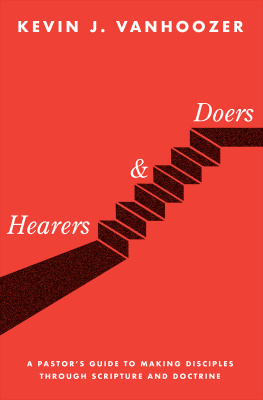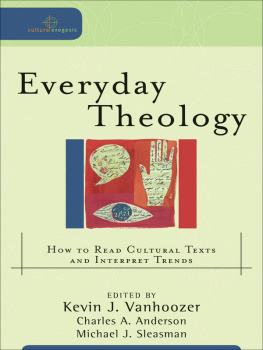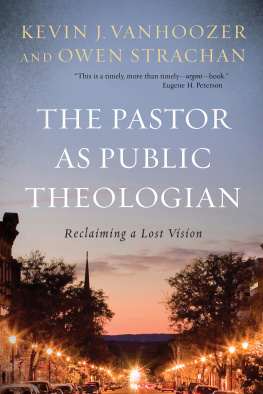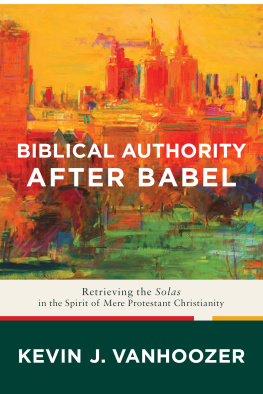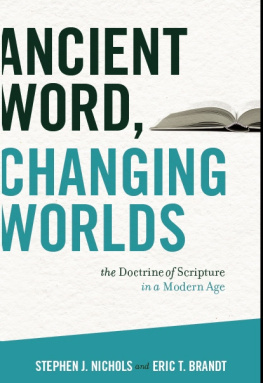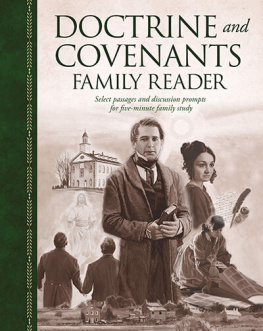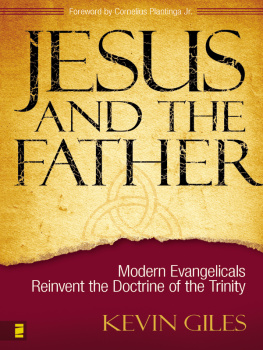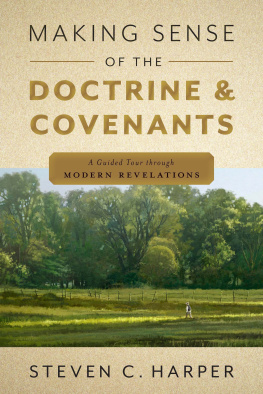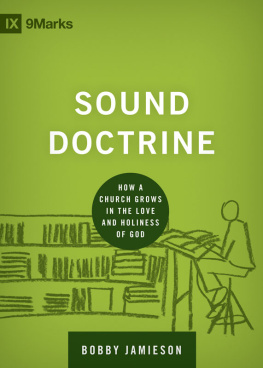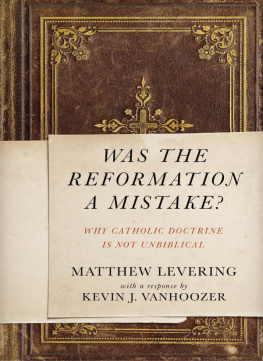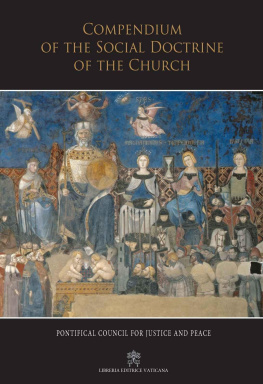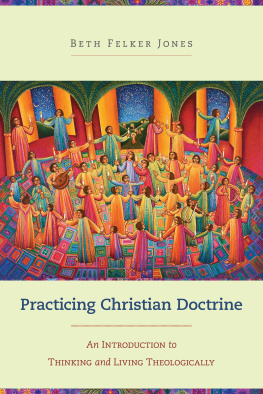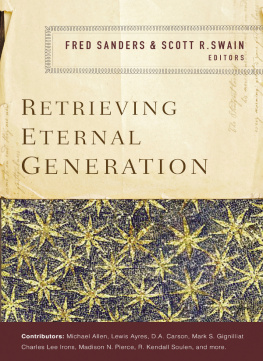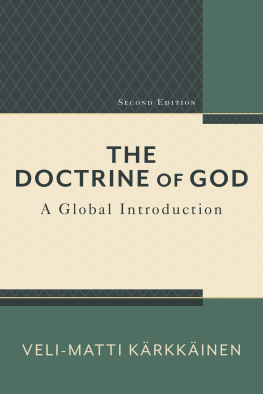Hearers and Doers
A PASTORS GUIDE TO MAKING DISCIPLES THROUGH SCRIPTURE AND DOCTRINE
KEVIN J. VANHOOZER


Hearers and Doers: A Pastors Guide to Making Disciples through Scripture and Doctrine
Copyright 2019 Kevin J. Vanhoozer
Lexham Press, 1313 Commercial St., Bellingham, WA 98225
LexhamPress.com
You may use brief quotations from this resource in presentations, articles, and books. For all other uses, please write Lexham Press for permission. Email us at .
Unless otherwise noted, Scripture quotations are from the ESV Bible (The Holy Bible, English Standard Version), copyright 2001 by Crossway Bibles, a publishing ministry of Good News Publishers. Used by permission. All rights reserved.
Scripture quotations marked ( NIV ) are from the Holy Bible, NEW INTERNATIONAL VERSION. Copyright 1973, 1978, 1984, 2011 by Biblica, Inc. Used by permission. All rights reserved worldwide.
Scripture quotations marked ( NRSV ) are from the New Revised Standard Version Bible, copyright 1989, National Council of the Churches of Christ in the United States of America. Used by permission. All rights reserved.
Portions of chapter appeared in Sola Scriptura, Tradition and Catholicity in the Pattern of Theological Authority , in Worship, Tradition, and Engagement: Essays in Honor of Timothy George, ed. David S. Dockery, James Earl Massey, and Robert Smith Jr. (Eugene, OR: Wipf and Stock, 2018) . Used by permission.
Print ISBN 9781683591344
Digital ISBN 9781683591351
Lexham Editorial: Elliot Ritzema, Jeff Reimer, Danielle Thevenaz
Cover Design: Eleazar Ruiz
CONTENTS
H earers and Doers is intended to help pastors fulfill their Great Commission to make disciples, with emphasis on the importance of teaching disciples to read the Scripturesevery word that comes from the mouth of God (Matt 4:4)theologically. The bulk of the book spells out more fully what theologically means in this context and why reading Scripture theologically is the royal road to discipleship. Here I need only to call attention to the fact that genuine faith in Jesus Christ as Lord and Savior involves both hearing (understanding) and doing (obedience) as well as heartfelt trust.
Early on in my writing career I adopted a policy of writing one book for the church for every book I wrote for the academy. Of these, this is the third in my unofficial trilogy on the vocation of the pastor-theologian as one who builds up the church of Jesus Christ.
The interests represented by these booksthe pastor as theologian, theology as practical understanding, the importance of understanding culture and the prevailing social imaginary (I explain this in ch.
It remains to be seen how our digital age and the social media that dominate it will affect the churchs disciple-making, and young people are hardly the only ones being spiritually formed by this culture. Perhaps its because I am married to someone from another culture (France) and have lived in two others (England and Scotland), but I became acutely aware of the formative nature of culture on a persons way of thinking, experiencing, and doing things long before I came across postmodernitys focus on the kinds of situatedness (for example, historical, cultural, socioeconomic, ethnic) that allegedly affect our reasoning about reality. I do not believe that culture is uniformly evil, but I do think that it is a powerful means of spiritual formation. John Calvin rightly stipulated that self-knowledge is not possible without knowledge of God, but today we should probably add that self-knowledge also requires knowledge of the social world we inhabit.
In spite of its importance, culture too often flies under the radar of disciple-making. I think the reason is that we fail to recognize how culture forms us not only by making explicit claims or value judgments (though it often does this too) but also subconsciouslyfor example, by creating pictures of the good life and conditioning us to think these pictures are normal.
Hearers and Doers is not the first book to address the nature and method of discipleship, yet three emphases may distinguish it from others:
1.Its argument that the best way for pastors to take every thought captive to obey Christ (2 Cor 10:5) is, first, to wake up their churches to the peculiar powers and principalities of contemporary culture by exposing the pictures and stories that capture our imaginations and program our lives and, second, to set out the more glorious truth of the gospel, thus redeeming the imagination and reorienting disciples so that they can walk in the truth.
2.Its insistence on reading Scripture theologically as a principal means for becoming spiritually fit (hence through Scripture and Doctrine in the subtitle).
3.The way in which it highlights the ironic juxtaposition of our cultures obsession with physical fitness and the churchs relative neglect of its members spiritual fitness. I have previously used diet as a metaphor for how doctrine encourages spiritual Here I expand the image and relate it to exercise and health as well. The overall aim is to help pastors view the church as a fitness culture and discipleship as the process of rendering believers fit for purpose.
I want to thank several groups who over the past couple of years served as hearers and, if not quite doers, then interlocutors of the original lectures on doctrine and discipleship that form the basis for the present book. As a senior fellow in systematic theology for the C. S. Lewis Institute, it has been my privilege to speak regularly at the Fellows Program in Chicago, under the able leadership of Karl KJ Johnson. The C. S. Lewis Institute exists to develop wholehearted disciples of Jesus Christ who are able both to articulate and live out their faith. Im grateful to Dan Osborne, too, for his invitation to address the Pastor Fellowship of the Northeast Ohio chapter of the C. S. Lewis Institute in Youngstown, Ohio. Thanks go to Al Fletcher for his invitation to address the 2016 Annual Meeting of the American Baptist Churches of Maine, and to Jack Hunter for the opportunity to speak at the New Orleans Baptist Associations Fall Meeting in 2018. I am grateful to Jerry Andrews for inviting me to San Diego to be the keynote speaker at the 2017 Theology Conference of the Fellowship Community (which Jerry acknowledges is the most redundant title in all Christendom), a covenanted biblical community of pastors within the Presbyterian Church (USA). Finally, Im grateful to Bob Hansen and Judy Bradish for their invitation to teach (again) in the Christian Perspectives adult Sunday school class that has been going for fifty-two years (and counting) at The Orchard, an Evangelical Free Church of America congregation in Arlington Heights, Illinois.
This book would never have seen the light of day without Thom Blair, an instructional designer at Faithlife, who persuaded me to record the material in part for a Logos Mobile Education course, and Jesse Myers of Lexham Press, who convinced me to turn the lectures into a book. I owe my editor Elliot Ritzema a special debt of gratitude for his many insightful comments and suggestions for revising the manuscript. Finally, I am grateful to Ryan Fields for reading the final draft with the eyes of a pastor-theologian, and for offering numerous ideas for improving the argument.

